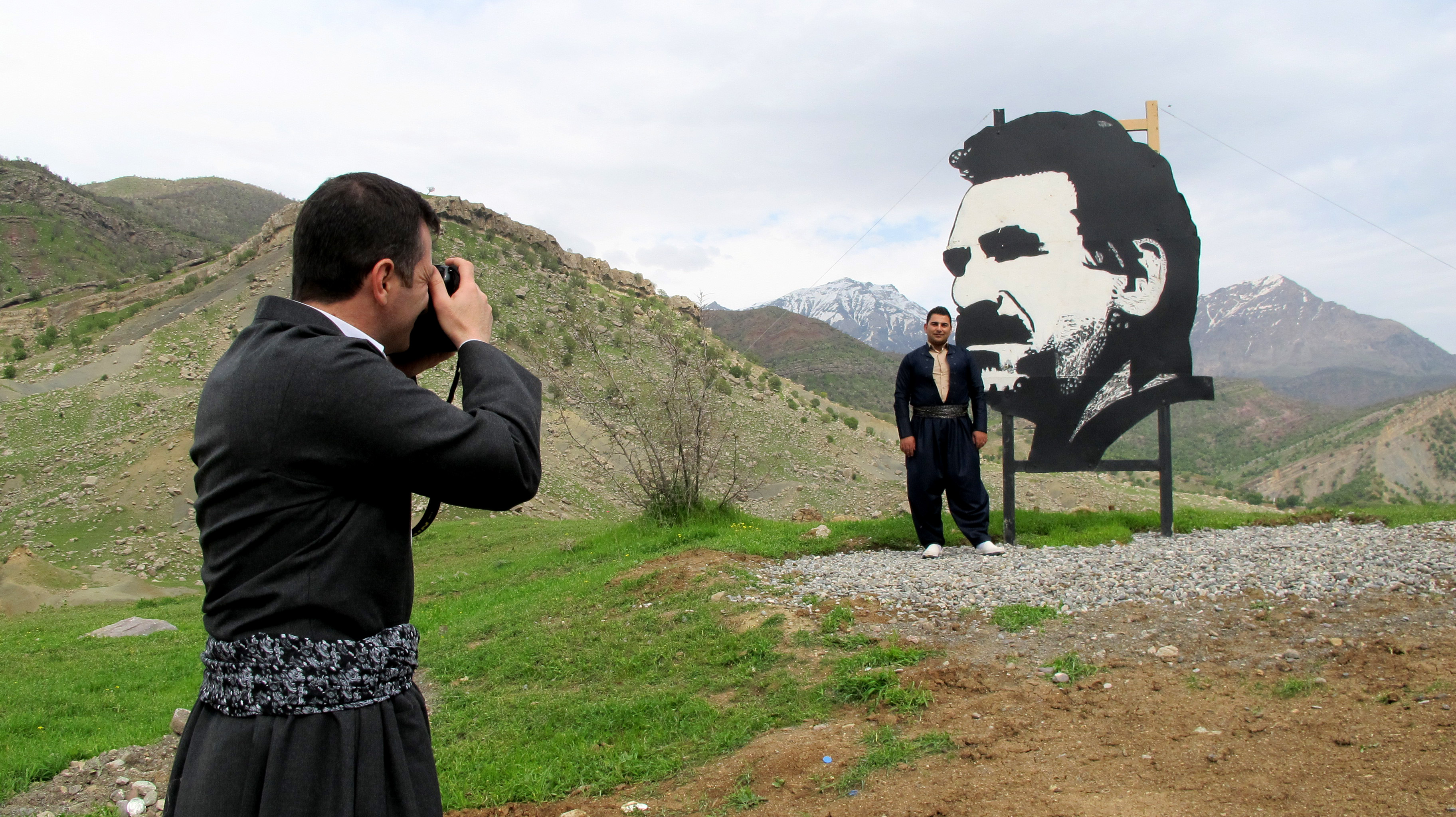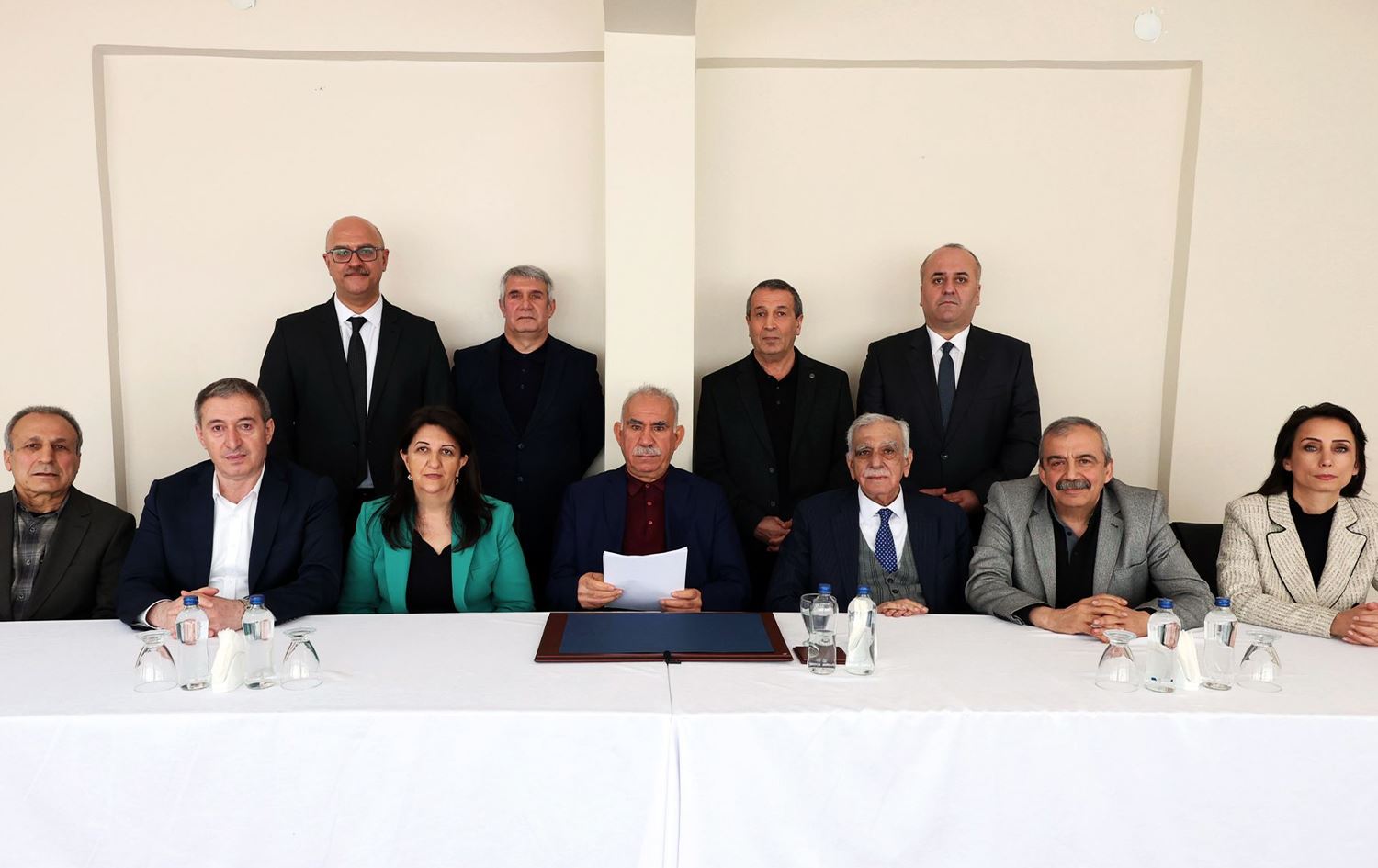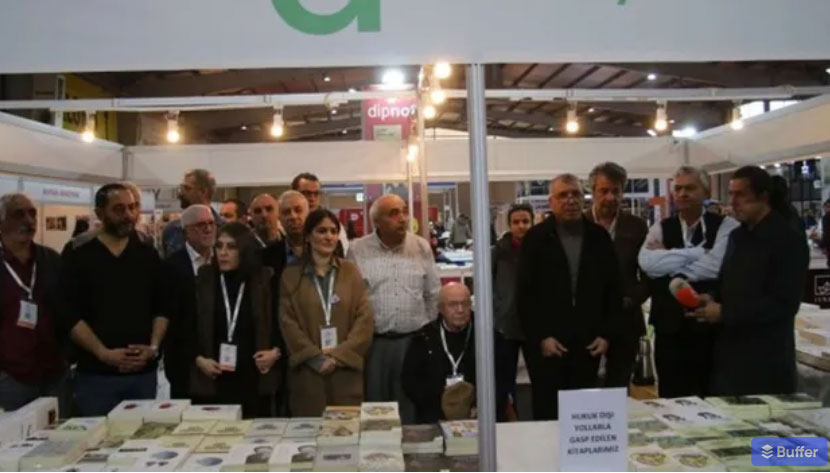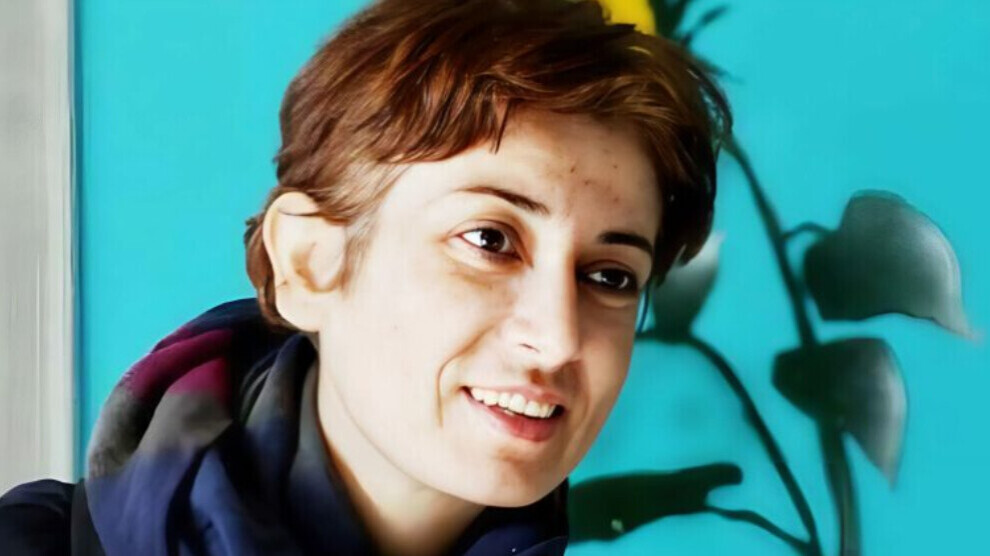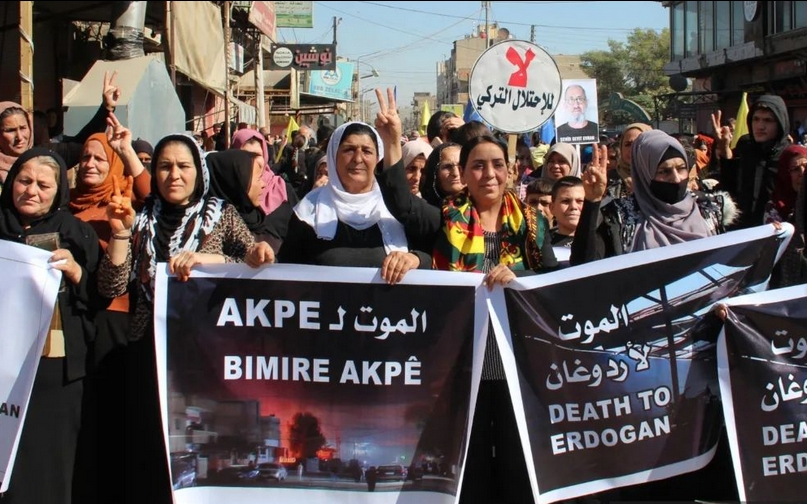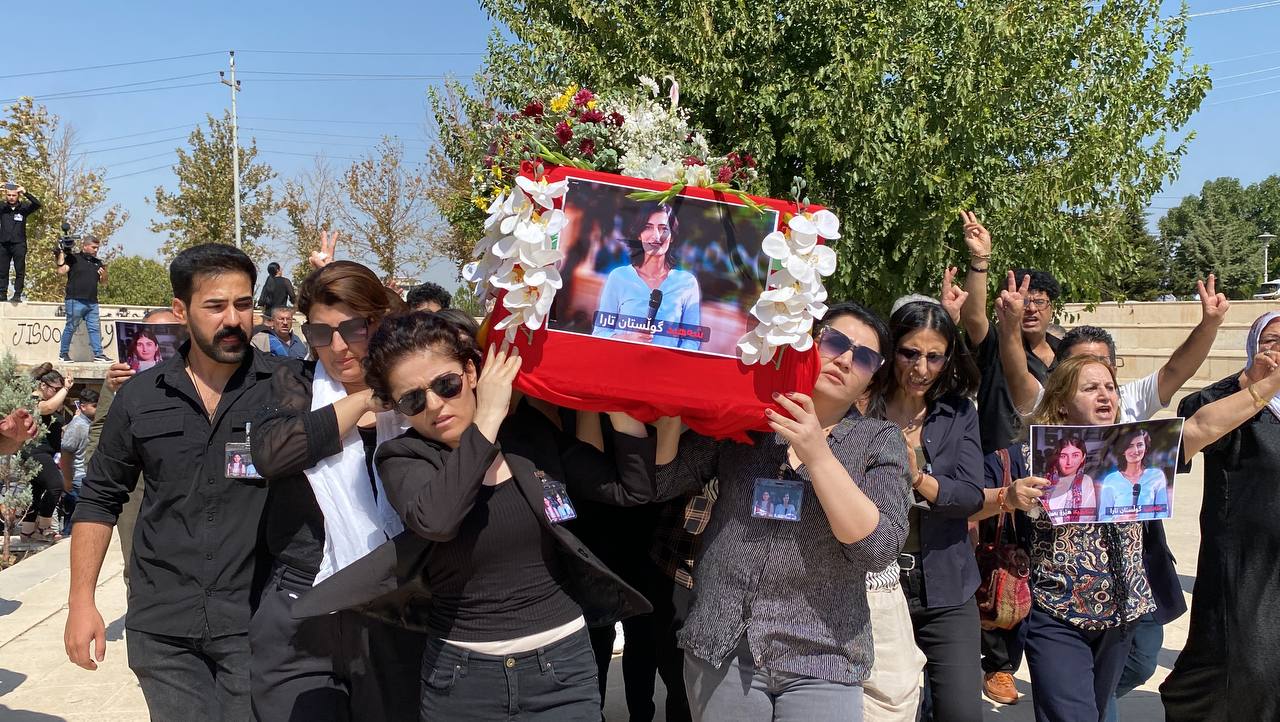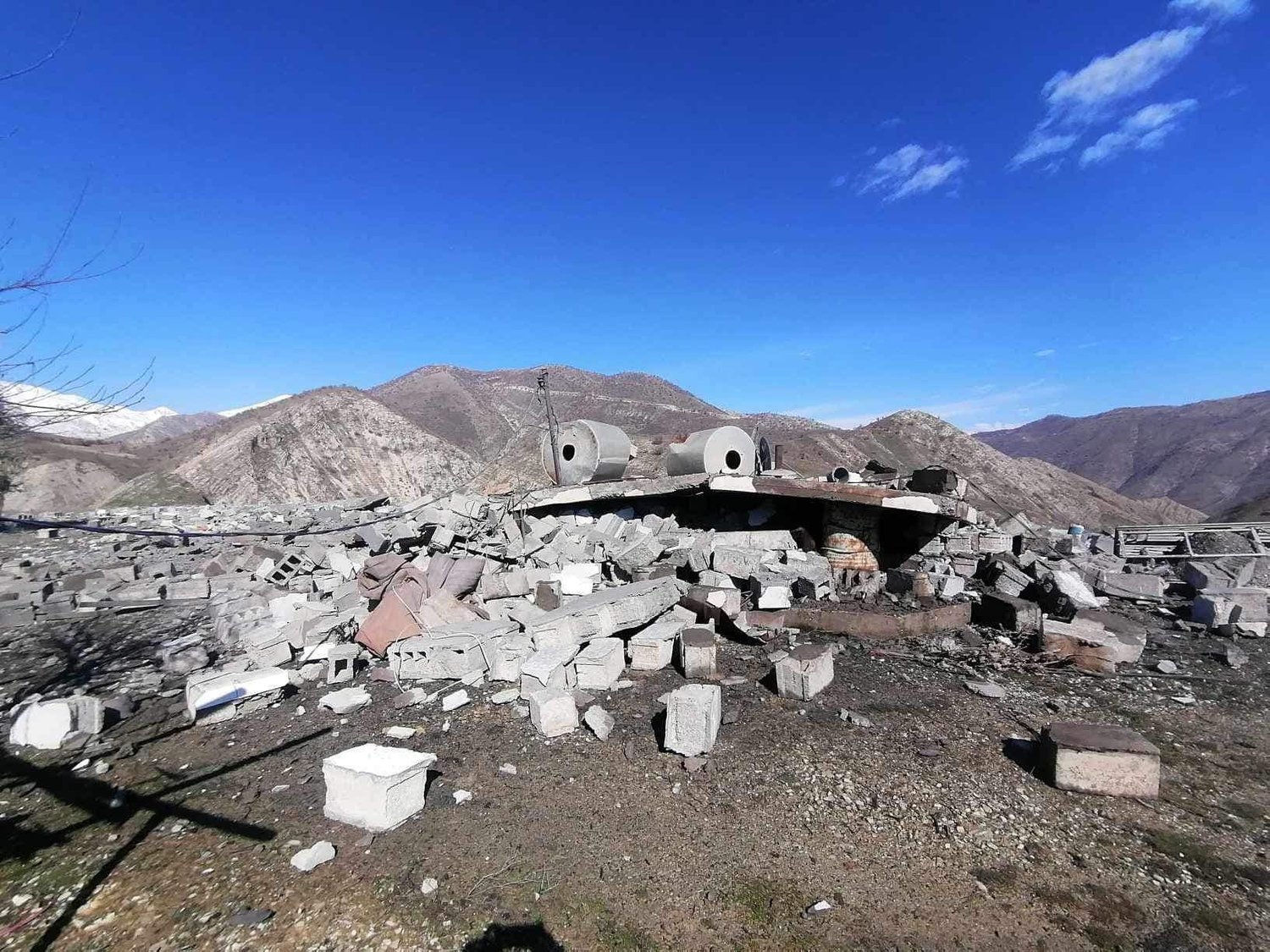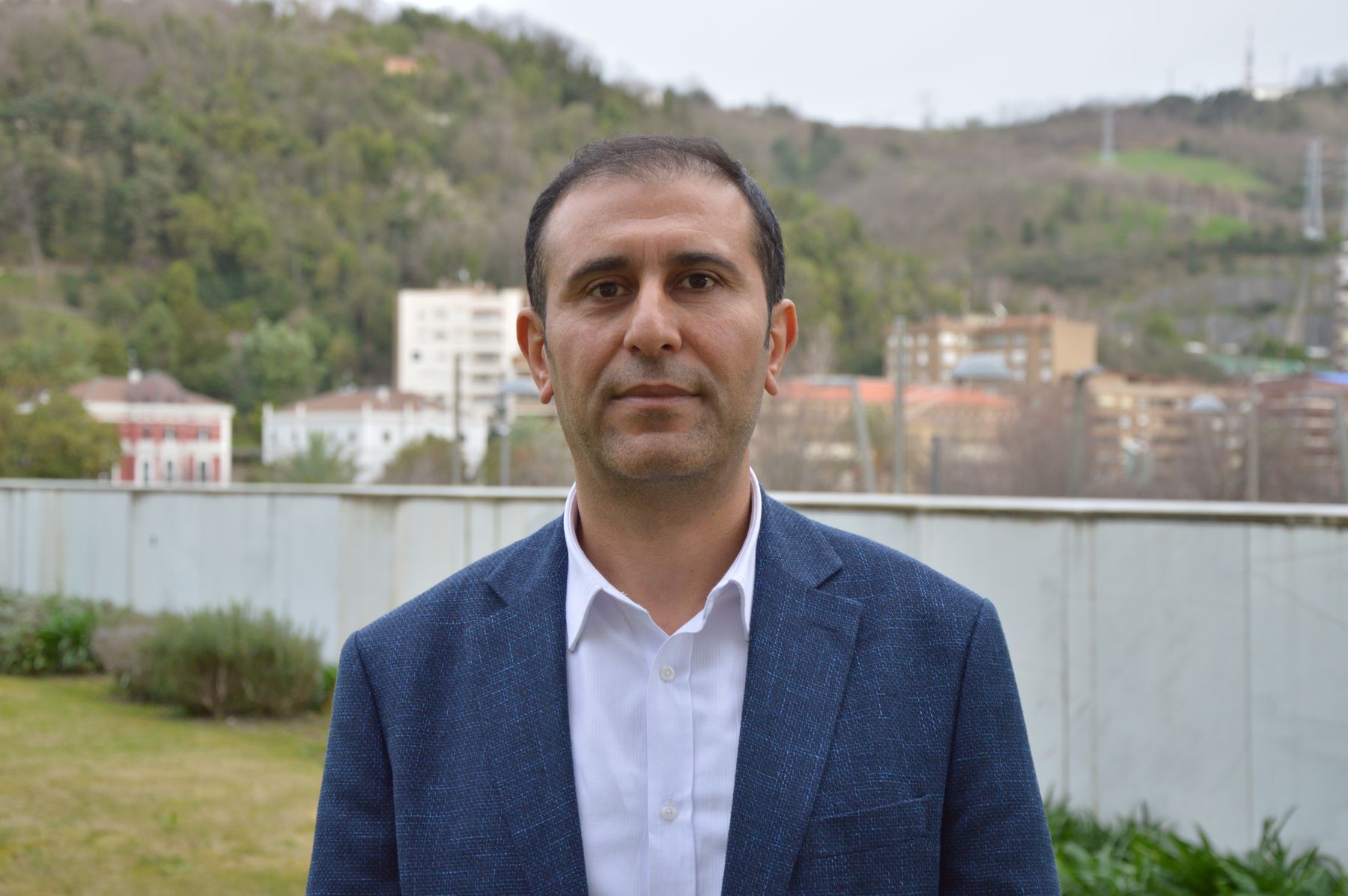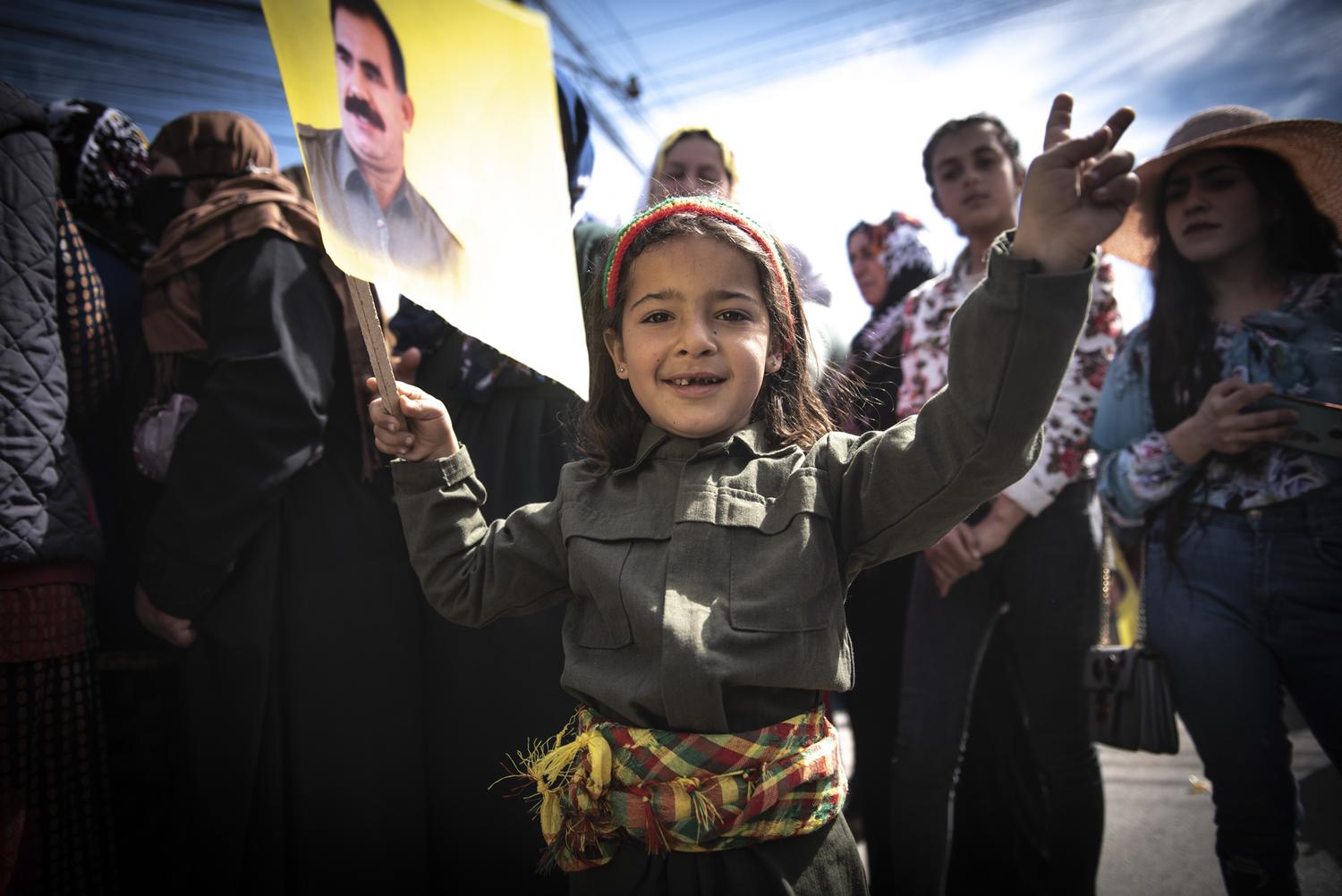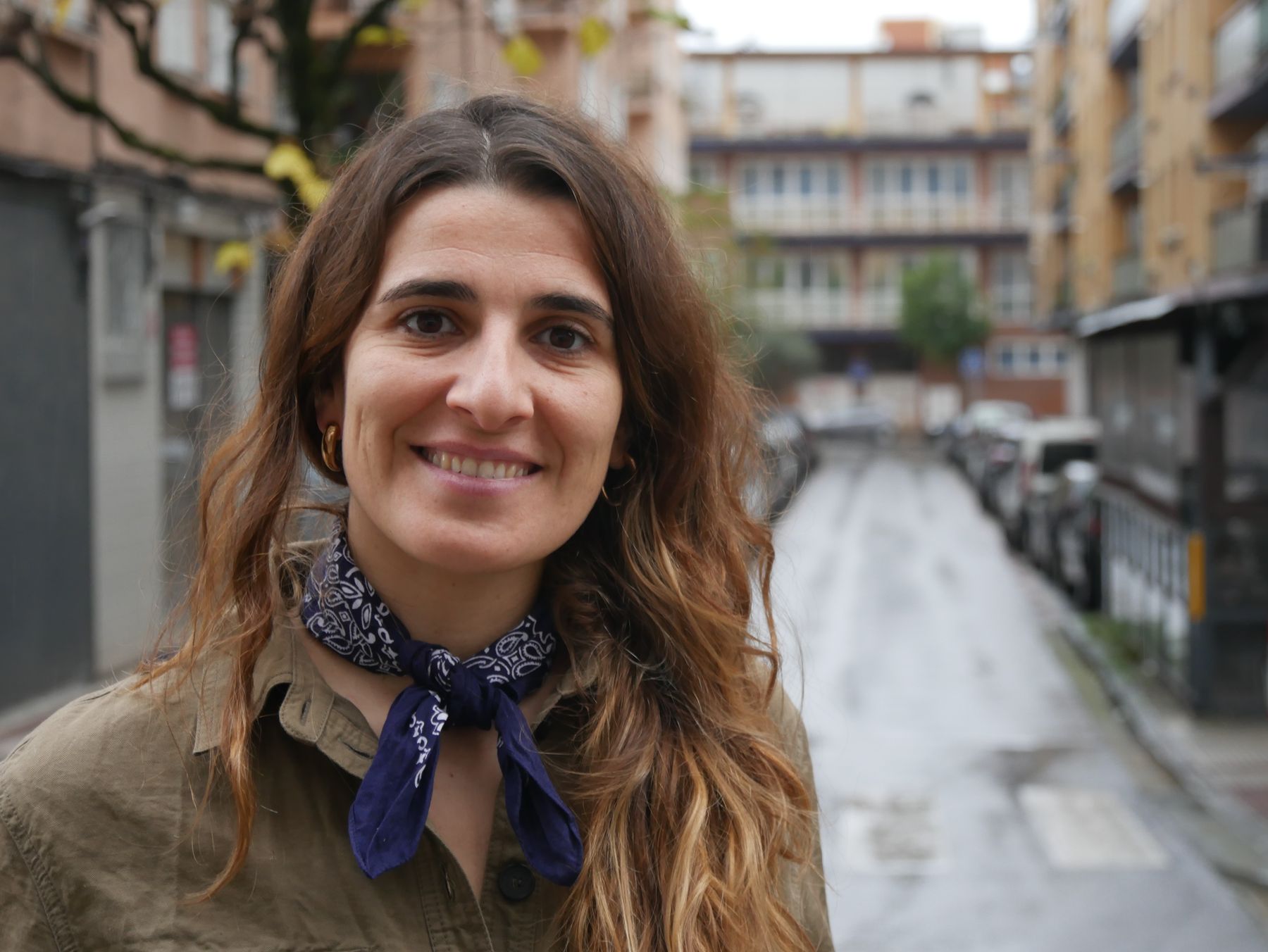“Imprisoning Kurdish politicians has become commonplace”
- SEBAHAT Tuncel is a politician from Kurdistan, located on the periphery of Turkey, in the south of the country. He has been in prison on several occasions for being part of the Kurdish liberation movement, and was the first prisoner elected to the Turkish Parliament in 2007. In 2016 he was last incarcerated and accused of accumulating sentences while in prison for terrorist offences and for various statements as a politician, including that Erdogan is "the enemy of women." He left jail in mid-May and took some time to answer ARGIA questions.
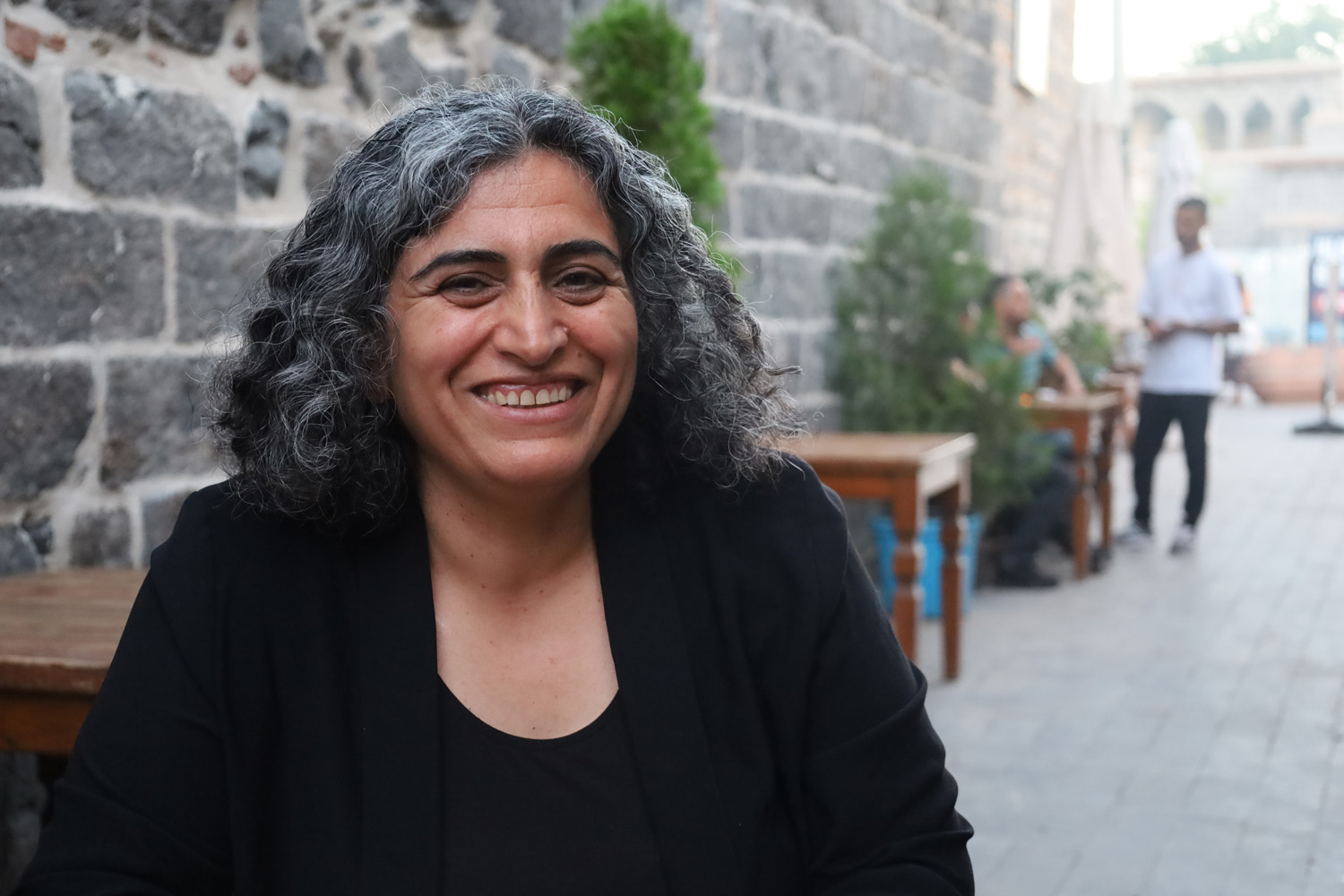
How do you see the situation after you leave jail? What has changed?
About eight years ago, we were put in jail. There have been many changes since then, of course. But since prisons are an instrument for isolating, all the things that have happened outside cannot be carried on well inside. In Turkish jails, the opposition press is banned and we have had to follow the evolution of society through the government media, in a very limited way. Life is slowly in jail and soon out. There it all has a concrete color.
When you get out of jail, you realize that a lot of things have changed politically, but others remain the same. The campaign against the Kurds is still under way. People clearly have to change, but there is no hope that change will come. I've been on the street for a short time, and I'm still trying to understand my evolution.
What is the situation of the Kurds in Turkish prisons?
Over 10,000 Kurdish political prisoners are now in Turkish jails. Since the establishment of the Turkish Republic, law and justice have been used against the Kurds. Hundreds of thousands of Kurds have been tried in the last twenty years. In fact, the State takes the citizenship away from us; the Turkish Constitution itself robs us of fundamental rights, the right to make politics, to organise ourselves and to protest. Some 4,000 Kurdish political prisoners are arbitrarily held in prison, arguing that they do not have a good attitude when they should be out of prison.
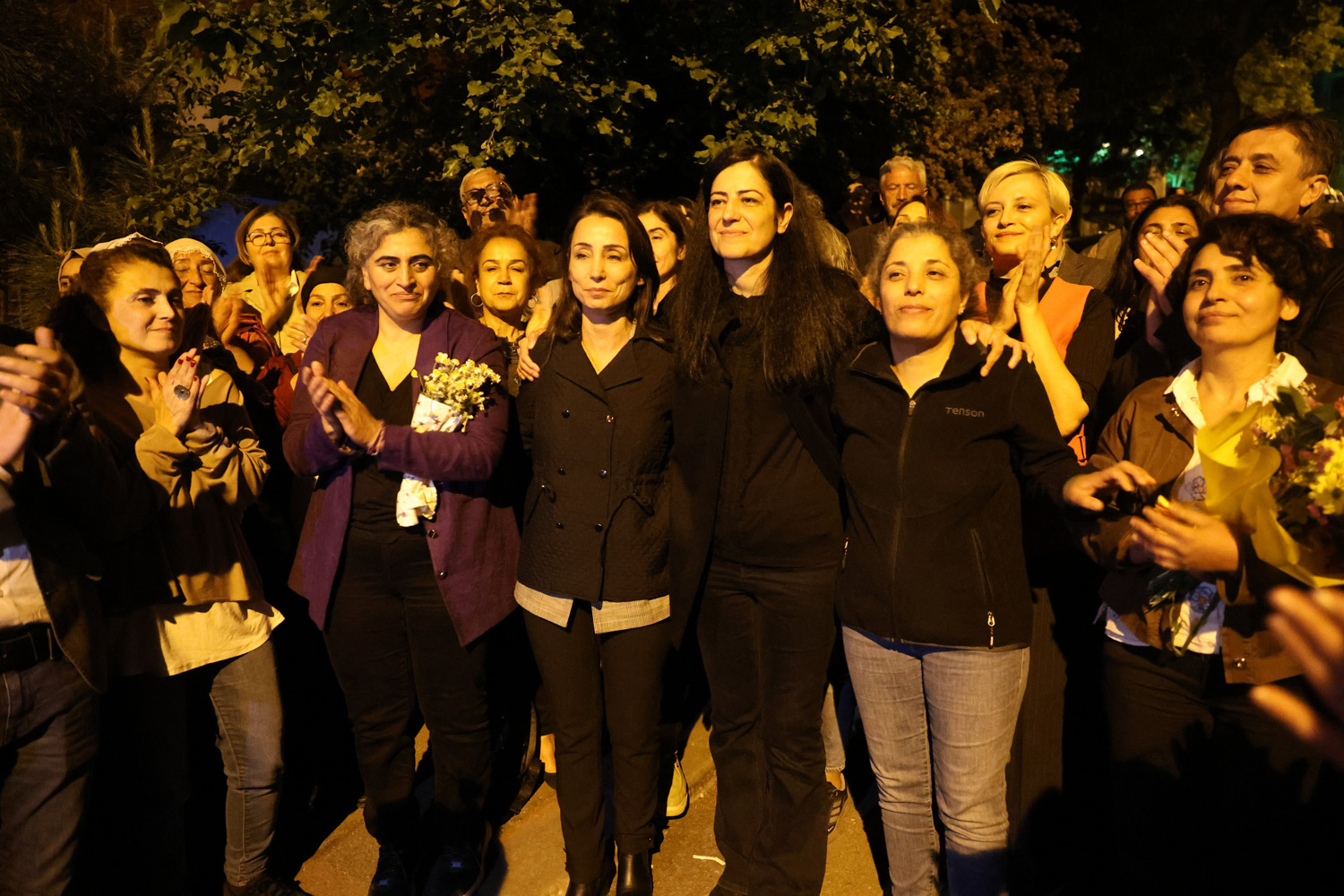
In the decade of 2010, before you last entered prison, there was a great movement for “democratic autonomy” in Bakur, in Turkish Kurdistan.
An important process for the Kurds in the region began in 2013 in Turkey. The negotiations between the Kurdish leader, Abdullah Ocalan, and representatives of the state opened the way to a process of democratisation and liberation in Turkey that culminated in the agreement. The peace process was supported by 80 per cent of Turkish citizens. In 2015, the pro-Kurdish party HDP broke out strongly in the elections in Turkey, with 80 representatives, and achieved 13% of the votes. The AKP party in Erdogan was therefore threatened by the ballot box scandal. It annulled the election results, turned a deaf ear to the agreements reached in the talks and suspended the negotiations.
In 2016, we demanded the recognition of the autonomous governments that we had developed in Bakur. The AKP responded strongly. For many months that he declared a curfew, hundreds of people were killed, thousands kidnapped and millions of civilians were forced to leave their homes. Several organizations in favour of Kurdistan, including HDP, were banned in the Caribbean country. Our representatives were imprisoned and the fascist government imposed its leaders on the areas won by the Kurds. All this has left the Kurdish population deeply wounded.
"You can't look for a solution with the old structures"
What is the current situation in Bakur?
Despite the change of governments in Turkey, our attitude towards the Kurds does not change, our desire for freedom is a threat to the Turkish state. Even in the twenty-first century, it is unacceptable that an attempt should be made to deny the existence of the Kurdish people. The rest of the national states, however, have other interests and turn a blind eye, putting their bit of sand in the oppression of the Kurds.
It is not just a problem for Turkey, but for the whole of the Middle East. The United Kingdom, the United States and the European Union also have a responsibility to seek a solution. If in the Middle East they are in favour of democracy, they cannot be complicit in the oppression of the Kurds by Turkey, Iran, Iraq and Syria. The Kurdish struggle guarantees the future for all people in the Middle East. The Kurds saved the world from the blows of Isis. We are proposing a democratic confederal republic in the Middle East and we invite all peoples to fight for a new life.
You were convicted in the so-called Kobane case. What were the foundations of this issue?
When ISIS groups invaded Kobane in October 2014, the HDP leader wrote a tweet asking the state to take charge of it in solidarity with the citizens of Koban. That message was the crime we were being accused of. Six years later, the indictment stated that all the deaths and violence that occurred in those years were the result of that tweet and of our political activity, although most of the deaths were from our party. They claimed 38 life imprisonment sentences and thousands of years in prison against us. Although most of the accusations resulted in acquittal, the members of the HDP executive committee imposed harsh sanctions on us, arguing that we were obstructing the unity and integrity of the Turkish State. They took our role as Kurdish politicians as evidence.
HDP was important in the negotiations between the Turkish Government and the PKK. What have you learned from this process?
The HDP participated in the negotiations between the Turkish State and Abdullah Ocalan, both in Imrali prison and in the Qandil mountains. In 2015, when it was demonstrated that the HDP programme and the peace proposal had achieved great social support, Erdogan left the negotiating table to return to the policy of denial and destruction. The AKP government does not want a real solution, that was clear when its "Kolapso Plan" was made public: to participate in the negotiation process with one hand; to prepare with the other a secret plan to end the Kurdistan Liberation Movement. Nothing has changed, the Turkish Government, which in 1925 drafted a very similar secret plan, which has since marked the attitude of the Kurds.
We have learned that the negotiating process must be transparent and open to public scrutiny. All parties must be on the same level and have a legal basis that is official for the process to be healthy.
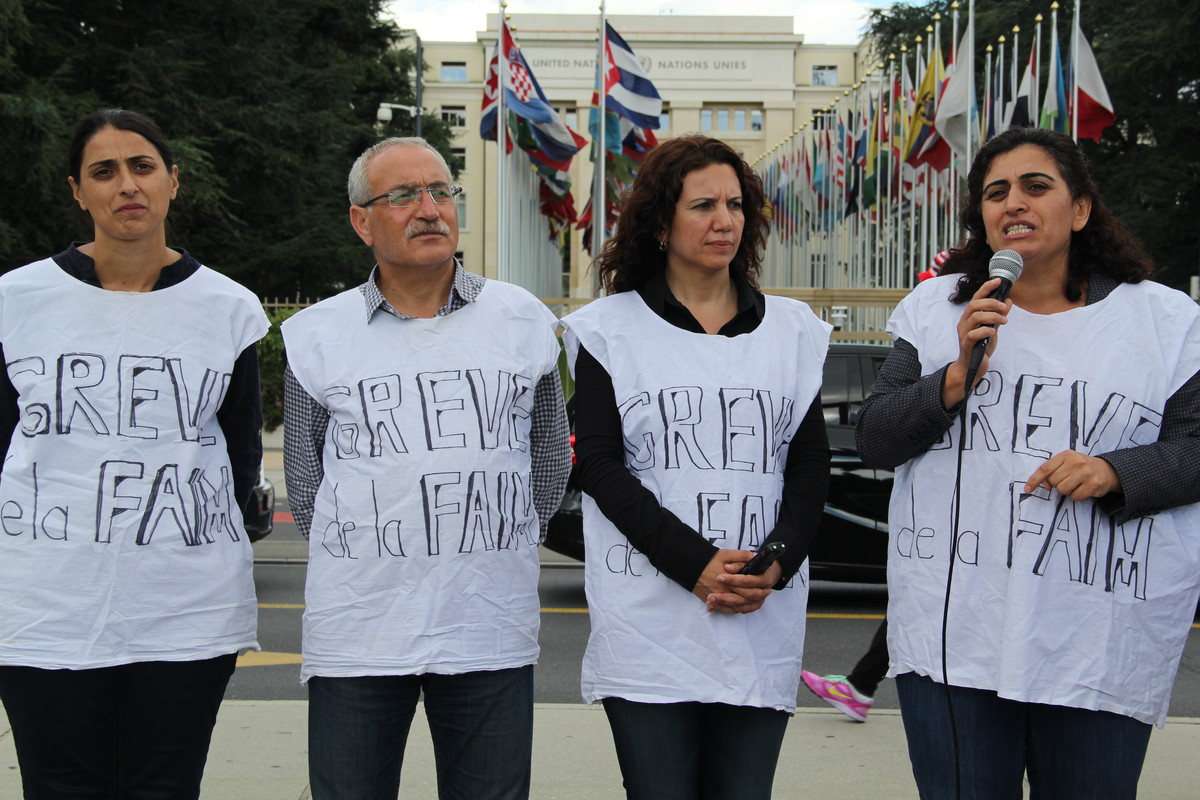
From experience in Turkish institutions, what changes can be made in this area?
The political movement in Kurdistan, especially the women’s liberation movement, has had a great influence on the Turkish women’s movement and politics in general. The co-presidency system, equal representation of women in men and participation in decisions have changed the colour of politics. However, the political, social and economic problems caused by capitalist modernity cannot be solved by old methods and structures. The liberation movement of Kurdistan proposes an alternative to the twenty-first century, the construction of a new life through a new ecological democratic paradigm based on the liberation of women. The Rojava revolution is the clearest example. Political, social and economic changes require a different system. The Kurds have taken important steps, both in theory and in practice. Ours is the struggle against the religious, nationalist, sexist and fascist system imposed on us.
The HDP was dissolved in 2023 and the DEM and other groups emerged. What is the political situation today?
I lived from jail the ban on HDP. The party of the Left Green Forces that was part of the alliance was presented to the elections in May 2023 and after the elections its name was changed to convene the Party of Democracy and Equality. They also forbade us that, and in the end it was named DEM. It means time in Kurdish, as does Dem Dema Azadi (it is time for freedom).
Kurdish political parties have been banned by the state since the 1990s. However, we have worked hard and created a new match every time. The imprisonment of politicians and the deprivation of the right to political participation by the Kurds has become commonplace. But the main problem is that the Kurds do not recognize our identity and our status as a people, so we have leaders who impose on us from outside. There is no democracy in Turkey.
The Kurdish governor of the Hakkari region has been sentenced to nineteen years in prison in June this year. More similar cases have also been reported in recent times.
Since 2016, elected mayors by the Kurds have been systematically removed, through any arbitrary evidence, dozens of convictions have been imposed on the basis of statements by a “secret witness”. A different law is imposed on the Kurds: It's officially called the Enemy Law, but it should be called the Colonial Law. We are being robbed of fundamental freedoms and rights through the Anti-Terrorism Act. The arrests, the imposition of authorities, the torture system on the island of Imrali, all measures of political genocide against the Kurds.
“Denying the existence of the Kurdish people in the twenty-first century is unacceptable”
Do you have any hope for a new negotiating process?
We always have hope, especially because the Kurdish people are calling for freedom. When Turkey was founded, the Kurds who fought with the Turks believed that they would be independent and free citizens in the shared homeland, as promised by Mustafá Kemal, the founder of Turkey. But it was betrayed since the creation of the state, and that has been the strategy against the Kurds since: denial, murder and assimilation. However, we are still alive and fighting. We are over 30 million Kurds in Turkey and we want to live freely with our language, identity and culture.
What are your plans for the future?
I've been out of jail for a short time, I'm looking for meaning in the last eight years. There were not many possibilities, but from now on I will continue to be held responsible for the fight. We have responsibility for our people, for women. As a revolutionary, my duty is to do what people expect from us. Our intention is to continue to travel for democratic freedom.
Lurrikara geopolitiko bat astintzen ari da Ekialde Hurbileko mapa. Anabasaren erdian, Abdullah Öcalanen bakerako azken deiak mahai gainean jarri du eskualdeko gatazka armatu zaharrena. Ez, aurrekariek ez diote bide ematen itxaropenari, eta historiaren trena inoiz baino... [+]
SDF kurduek gidatutako koalizioak eta Siriako Gobernuak su-etena adostu dute. SDFk Siria ekialdeko eta ipar-ekialdeko eremu zabala kontrolatzen du egun, eta hitzarmenak jaso duenez, gobernuaren esku geratuko da orain.
Abdullah Öcalan buruzagiak PKKri otsailaren 27an eskatu zion armak uzteko. Taldeak egin duen adierazpenean babes osoa agertu dio buruzagiari eta Öcalanek eskatutakoa betetzeko konpromisoa adierazi du.
Urteak iragan dira bere azken argazkia ikusi zenetik. 26 urte daramatza preso Abdullah Öçalanek Turkiako Imrali uhartean, "erakunde terroristako" buruzagitza egotzita. Ostegun eguerdian bere bideo bat ez, baina argazki berri bat zabaltzeko baimena eman du... [+]
Turkish helicopters and fighter aircraft cover the sky in the Kurdish area in northern Iraq. The Turkish Air Force has bombed 381 sites in the major military operation in recent weeks in the Kurdistan Autonomous Region (DRC). The Turkish Ministry of Defence has stated that "the... [+]
Urtzi Urrutikoetxea nazioarteko kazetariarekin mintzatu gara Radio Kobanen, iaz idatzitako Kurdistan-Argi bat ekialde hurbilean liburuari buruz. Testuak azken urteetako gertakizunei erreparatzen die, eta atzerago ere begiratzen du herri kurduaren egoera politikoa eta... [+]











